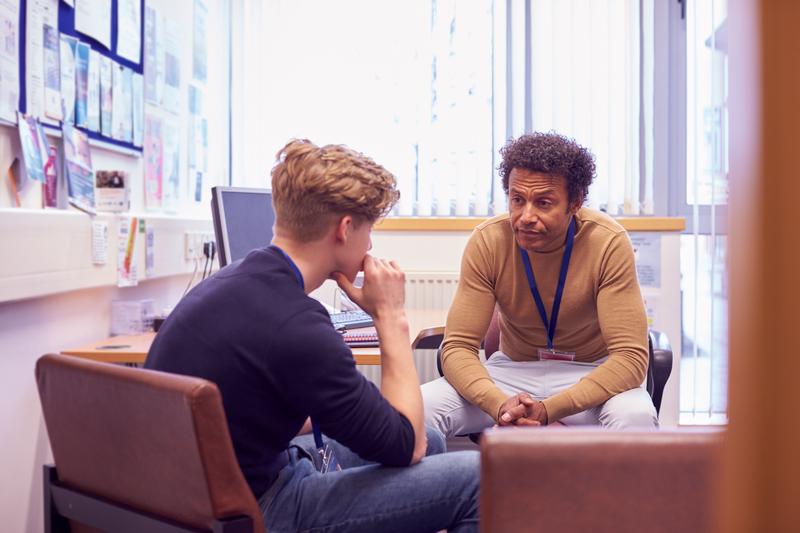I find that one of the biggest challenges that college students face is the ability to balance grades and mental-health. We have been taught by our parents, teachers, and friends that being academically exceptional will be a tremendous advantage in college—but the ability to maintain mental health despite the chaos, stress, and turmoil during college is just as important, if not more important than grades themselves.
I personally faced moments in my life when I thought I was sitting on a lonely island, feeling like there weren’t any options except to sulk in my sorrows. It turns out there were many resources that were at my disposal, and this article will address the resources that college students like me can use to the fullest advantage.
Here is your first resource: your friends are your most reliable resource yet. This does sound cliché, but it is absolutely true. For those who are depressed, they feel that the people around them will not understand them whatsoever.
This is understandable; depression and anxiety is a very individualistic, personal experience that may be different for everybody else. There is this premonition that if a person who has depression confesses that they feel depressed, the other person may not fully understand. This fear leads many people with depression to resort to loneliness, purposefully shunning themselves from the outside world.
People with anxiety and depression need to know that they shouldn’t fear this, that their closest friends in college will be there for them no matter what. They have to understand that their friends are their friends; they are friends because they deeply care about your own well-being, and the ones who are truly your friends will never leave you simply because they can’t fully comprehend your individual experience with depression. Knowing this is the first step to finding help.
For those who are living in college dorms, RAs, otherwise known as Residence Assistants, are another great resource. Like your friends, RAs are in charge of making sure the residences at the floor feel comfortable, safe, and included. RAs are supposed to make sure that the college students in their designated dorm feel a sense of community and belonging. It is the RA’s job to assist students who are feeling depressed or anxious, acting as the middle-man (or woman) where they can help contact other resources.
Another reliable mental health service that students can use is the Suicide Hotline number. The number is available twenty-four hours a day, seven days a week. The number is meant to be anonymous, so there is no incentive for them to get your email, phone number, or any private information.
The sole purpose of the number is to give people with depression a safe, private, and comfortable way to confess their feelings to the outside world, and don’t worry—any information about the call is strictly confidential. Here is the number for the Suicide Hotline for those who need it most: 800-273-8255.
For me, a very healthy and simple solution when I feel anxiety is to take a nap. Considering the amount of work that needs to be finished during college, it is very easy to lag behind and get your sleep schedule out of tune. According to an article by the Sleep Foundation, sleep and mental-health are actually interconnected; a very eye-opening statistic that is mentioned is that, based on a study by the National Library of Medicine, 75% of people who are depressed have insomnia.
I can relate this to personal experience. I remembered I had to wake up early for a morning class, and my brain was quite fuzzy since I didn’t get enough hours of sleep. After I was done with class, I didn’t feel right. I tried to shrug it off by going for a walk at the nearby lake, but I still wasn’t feeling fine.
I went back to my college dorm, then I decided to hit the bed and take a two-hour nap. When I woke up, I suddenly felt refreshed and energized—that is when it hit me: sleep, in and of itself, can be the answer to depression and anxiety.
There are other simple and healthy methods to cope with depression. One method can simply be to do something fun and recreational for once; take a break from the textbook and play a video game. In my last article, I mentioned how the college experience is about balancing between academics and recreation.
Playing video games helps you bond with friends in college. Additionally, another indirect benefit in playing video games is your mental state as well. Playing video games acts as a distraction from the stress you feel when you do something serious like studying. There is a breath of fresh air when you are finally relieved of that stress.
Whenever my parents text or call me, a question they always ask me is if I am getting out and hanging out with friends. The answer is always ‘yes’, and I am getting out a lot. A recreational thing I like to do is play pool and ping-pong in the gaming room at my college—it feels really good to beat somebody in a game.
Maybe you are not much of a gamer like me. Maybe a recreational thing you like to do is to go outside and play basketball. Maybe your thing is to take a walk in the park. Maybe it is just chatting with your friends at a nearby restaurant. Whatever that thing is, if it helps you destress and feel happy, keep doing that!
How to Cope with Depression During College
Beat depression and anxiety in college with a network of support.

A student discusses tips and tricks on how to handle depression and anxiety during college.